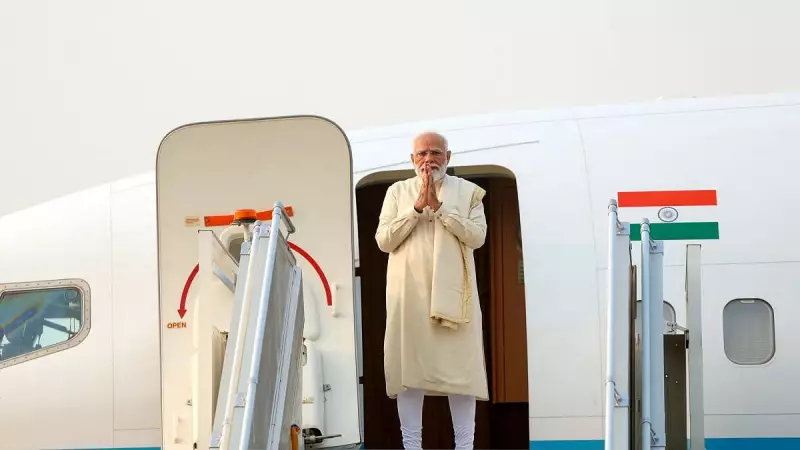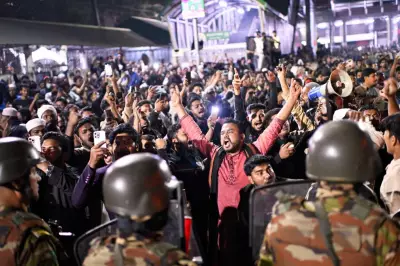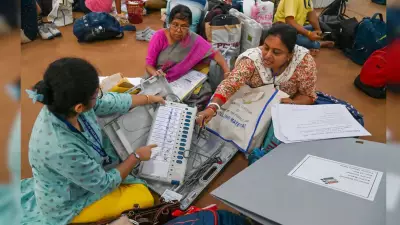
Prime Minister Narendra Modi has embarked on a crucial two-day diplomatic mission to Bhutan, reinforcing the longstanding friendship between the two neighboring nations. This significant visit underscores India's commitment to strengthening regional partnerships and enhancing bilateral cooperation across multiple sectors.
Strengthening Historical Bonds
The Prime Minister's visit to the Himalayan kingdom comes at a time when both nations are looking to deepen their strategic partnership. Official sources confirmed that PM Modi departed from New Delhi on Friday morning, marking his second visit to Bhutan as India's Prime Minister. The timing of this diplomatic engagement highlights the importance both countries place on maintaining their special relationship.
During his two-day stay, the Indian Prime Minister is scheduled to hold comprehensive discussions with his Bhutanese counterpart, Tshering Tobgay. These high-level talks are expected to cover a wide range of bilateral issues, including economic cooperation, security matters, and cultural exchanges. The agenda also includes discussions on enhancing connectivity and people-to-people contacts between the two nations.
Comprehensive Bilateral Agenda
The diplomatic engagement features an extensive program designed to address multiple aspects of the India-Bhutan relationship. PM Modi is set to meet King Jigme Khesar Namgyel Wangchuck, further solidifying the personal bonds between the leadership of both countries. These royal interactions have traditionally played a crucial role in maintaining the special character of India-Bhutan relations.
Economic partnership forms a significant component of the discussions, with both nations looking to enhance trade and investment flows. India has been Bhutan's largest trading partner and the primary source of foreign investment. The talks are expected to explore new areas of economic collaboration, particularly in sectors like energy, technology, and infrastructure development.
Regional Cooperation and Future Prospects
Beyond bilateral matters, the leaders are anticipated to discuss regional security issues and cooperation within the South Asian framework. The visit occurs amid evolving geopolitical dynamics in the region, making the India-Bhutan partnership increasingly significant for maintaining stability and promoting shared prosperity.
The diplomatic mission represents continuity in high-level exchanges between the two countries. Bhutanese Prime Minister Tshering Tobgay had previously visited India in March, indicating the regular dialogue maintained at the highest levels. This reciprocal visit by PM Modi demonstrates India's Neighbourhood First policy in action, emphasizing the special importance New Delhi places on its relationship with Thimphu.
Energy cooperation remains a cornerstone of the bilateral relationship, with India assisting Bhutan in developing its massive hydropower potential. Several joint hydropower projects are currently operational, providing clean energy to both nations and contributing significantly to Bhutan's economy. Further collaboration in this sector is expected to feature prominently in the discussions.
Cultural and educational exchanges also form an essential part of the relationship-building process. The two nations share deep historical and cultural ties, with Buddhism serving as a strong connecting thread. Enhanced cooperation in education and skill development is likely to be discussed, providing opportunities for youth from both countries.
As the visit progresses, observers are watching for concrete outcomes that could further solidify the special relationship between India and Bhutan. The discussions are expected to yield agreements in various sectors, potentially including infrastructure development, digital connectivity, and environmental cooperation.
This diplomatic engagement reinforces the time-tested friendship between India and Bhutan, two neighbors whose relationship has often been described as a model for bilateral cooperation. The visit demonstrates both countries' commitment to addressing contemporary challenges while building on their historical bonds for a prosperous shared future.





